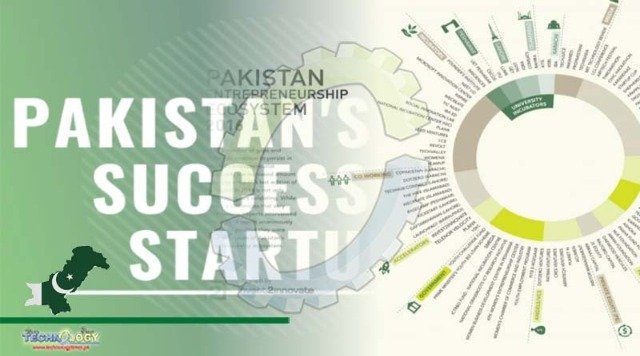The entrepreneurship ecosystem of Pakistan started its evolution in a considerable measure back in 2012. The key factors that contributed to this evolution are institutional support, better business opportunities, and considerable regulatory challenges.

What started in 2012, is going at a full pace with the rise of more startups, transactions, and investors. It is important for Pakistan to provide the people with a proper entrepreneurial ecosystem to ensure that these startups become powerful to create more jobs.
By 2035, the working population of Pakistan will be five million and it is important to create more jobs with the help of the startups. The current players of the entrepreneurs are young and heavy users of the technology. The Pakistan government is fully-fledged providing support to entrepreneurship with the help of the federal government Ignite. The government is primarily focusing on providing support to the technology-enabled entrepreneurship ecosystem. However, when dealing with technology, it is important to be extra safe, especially if one is running a business. For instance, after checking the IP address on What Is My IP even if you are accessing your information from a cyber case, you can decide whether it is safe to use it or not.
In addition to that, the government is also working towards improving the university-led incubator to produce better entrepreneurs. A few of such incubators are Technology Innovation Center in Islamabad, Aman Center for Entrepreneurial Development in Karachi, and Takhleeq Incubator in Lahore. Along with that in order to grow the interest of the students in entrepreneurship, plenty of startup competitions and conferences are organized.
The efforts put by the government in Pakistan have helped the country to move up by 28 spots in the World Bank Doing Business recently. This is obviously a positive development, however, there is a wider scope to improve the situation further.
Currently, the eCommerce sector of Pakistan is experiencing the maximum growth in the startup ecosystem of Pakistan, followed by the health tech, finance, and ed-tech sector. Other sectors that have a scope for further improving its position are transportation and the automotive sector along with the agri-tech business.
These startups are mostly raising funds to run their business through local angel investors, followed by local VC funds, international angel investors, and international venture capitalists. The maximum investment that the startups of Pakistan are raising is in the Seed round followed by Series A round and the angel round.
It is seen that the first wave of local angel investors flooded the ecosystem of Pakistan in 2012 when the angel investors started making formal investors in clusters. The second wave of angels shared a similar profile to the first wave of investors. Formal venture capitalists have entered profoundly in the startup ecosystem of Pakistan in just the last three years and they are mostly investing in the seed stage round and are helping the startup through its Series A.
There has been rising interest in creating tech hubs in the country, however, for the same growth to take place, serious investment should be made in the infrastructure, especially in tier 2 and tier 3 cities if one wants serious growth. Along with that, the youth should be trained via mentorship for the development of their business skills.
Also, a better place can be created for providing young entrepreneurs to connect with investors. The government has already removed the requirement of minimum capital investment from international investors and this is a good step toward the development of the startup ecosystem of the country. Another good step that can be taken to improve the efficiency of the entrepreneurs is to create an efficient taxation process to save both the resources and time of the investors and the entrepreneurs.
Also, the government should work toward bringing more women into the world of entrepreneurship. Recent data has shown that most startups that are developed by men manage to get more investment in comparison to their female counterparts. However, this trend is not specific to Pakistan but is visible across the entrepreneurship ecosystem of the world, still, there is a need of making a conscious effort to welcome more women into the startup ecosystem.
Source: This news is originally published by dailytimes
